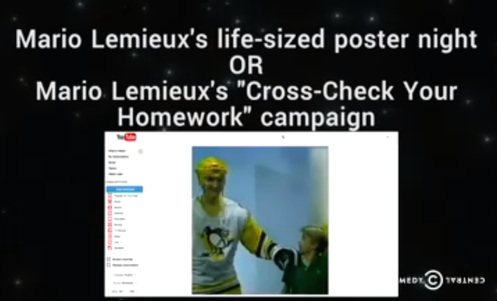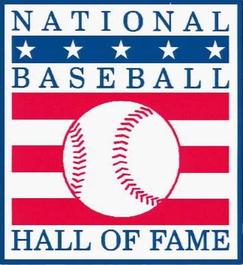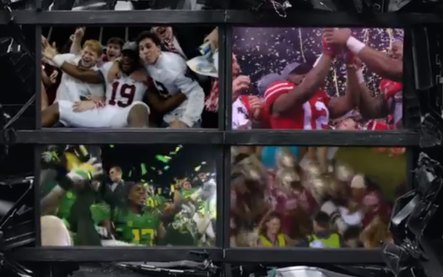|
Consider it a "Throwback Thursday" if you want, but an old, local television promo for Mario Lemieux Life-Size Poster Night during his rookie season in 1984 was featured on Comedy Central Thursday Night. "@Midnight with Chris Hardwick," the late night game show that revolves around content found on the internet, played a game called "Loco-mercials: Sportz Edition." Professional athletes acting in local commercials always leads to awkward moments. Hardwick gives the comedians (who are also the contestants) a professional athlete and gives them two different options of what exactly the athlete is endorsing. At 2:57 in the video below, a young Mario Lemieux is standing next to what appears to be a starstruck (or frightened) child. Of the two options, it was life-sized poster night at the old Civic Arena. They played the commercial and with four comedians there to make jokes, hilarity ensued. @midnight Also, can you believe that was 30 years ago? So much has changed since that awkward local ad. Lemieux has saved the franchise three times (unofficial count), and now owns the team that once made him do that commercial as a rookie. Here's the full commercial in all its awkwardness.
0 Comments
It's awards season. It's bowl season for film enthusiasts. Like most of the 39 bowl games, it's just filler for network television. Three plus hours of your life you waste watching something that means nothing. Below are a list of awards shows for film for the next two months and which bowl game from the 2014-15 bowl season they compare to: Critics Choice Awards- New Orleans Bowl
First awards show. First bowl game. Who cares. Golden Globe Awards- "New Years Six Bowls" that weren't Playoff Games -Tiny Fey and Amy Poehler hosting is like watching Baylor play Michigan State. Good enough to maybe host a bigger awards show, but just fell short. Writers Guild of America Awards- Military/Armed Forces Bowl -Doesn't seem that important, but our military protects our freedom, and writers are one reason why actors have jobs. Producers Guild of America Awards- Quick Lane Bowl -The important people in television and film that are forgotten. Teams that play in this bowl are too. It's played in Detroit. Screen Actors Guild Awards- GoDaddy.com Bowl -Something to keep you occupied between the Golden Globes and the Oscars Directors Guild of America Awards- Idaho Potato Bowl -Nobody knows about this awards show and bowl game. British Academy Film Awards- Bahamas Bowl -There's a British connection to the Bahamas. That counts Independent Spirit Awards- Beach Bowl -Indie film awards. BYU is an Independent. Memphis is in the AAC. Same thing. The Oscars- College Football Playoff Semifinals/National Championship -This is the awards show that really matters. You may not like the hosts, the length of it, and the winners, but you'll watch because they've been talking about it for weeks and you want to see the big winner. The Baseball Hall of Fame takes the "country club mentality" very seriously when electing members to Cooperstown. Members of the Baseball Writers Association of America are partly to blame, but the other half is what is called "The Morals Clause." It is Rule 5 in the process of electing players to the Hall:
The "steroid era" players in Major League Baseball, whether they took PED's or not, are plagued by this clause. Players like Barry Bonds, Sammy Sosa, Mark McGwire and Roger Clemens may never land in Cooperstown. Putting the vote into the hands of baseball (and non-baseball) writers has lead to some favoritism and some voting on "what they've heard" about a guy who has played in this era of baseball. In 2013, not one player was elected to the Hall of Fame. A year later, Greg Maddux, Frank Thomas and Tom Glavine were elected. What got the headlines during the 2014 voting was Dan LeBatard giving his vote to the readers of Deadspin. Of course, the BBWAA was quick to revoke his voting privileges, but it did shine a light on the questionable voting process. This year's inductees are John Smoltz, Randy Johnson, Pedro Martinez and Craig Biggio. Three of the best pitchers from the 1990s and 2000s, and, no surprise, a second baseman who missed making the Hall of Fame by one vote in 2014, and is under the same microscope as the other big hitters of his era. The keyword here is "speculate" for baseball writers. They go by what they hear, who is in their inner circle, their sources, and at times, they do play favorites. This might be a reason why someone like Mike Piazza was not elected this year. All of this ends back at the "morals clause." The truth is...almost everyone in the Baseball Hall of Fame falls short of Rule 5. The first Hall of Fame inductees in 1936 were highlighted by the two men who got the most votes: Ty Cobb and Babe Ruth. Without a doubt, two of the best players in the game's first half century. But Cobb and Ruth don't exactly define the "morals clause." Ty Cobb was known for violent outbursts and being a bigot, and even bragged to a reporter that he may have killed a drifter. Babe Ruth was a fantastic pitcher for Boston and was the first home run hitter in the game after changes to the game. Especially pitching. He set a single season (60) and career home run record (714) that many said, at the time, would never be broken. Ruth was a great player, but he was a juvenile who was sent away by his parents and found baseball as an escape from that life. Many recall Ruth also being a womanizer and a drinker during his career as well. He once got up on top of the dugout to go after a heckler and called the crowd at the Polo Grounds "yellow." Luckily for Cobb and Ruth, there was no television in their era and radio was in its infancy. No internet, which meant no Facebook and Twitter to report their actions, and with the local newspaper reporter covering the beat (or the players in general), some or most of their escapades went unreported. Some might question Grover Cleveland Alexander's alcoholism in his later years. He was inducted into the Hall of Fame in 1938. A great pitcher. A pioneer in the early years of baseball, but he used alcohol as a coping mechanism for what he saw while serving in World War I. Baseball has had its moments defending morals and character. The banning of eight members of the 1919 White Sox after they threw the World Series against the Reds is one example. Speaking of Reds, Pete Rose was another life-long ban the game issued in 1989 to the all-time hits leader. Gambling on your own teams games and fixing championships are two issues many can get behind when discussing morals. The use of PED's is another one that the voters are taking seriously. There are players with a lot of evidence to prove they used steroids. Others, like Biggio and Piazza, are left to the "he said, she said" crowd to speculate when filling out a ballot. You could question the moral standing of John Smoltz, who once said that homosexuality was the same as bestiality, which, in regards to Curt Schilling's comments, would not make him a Democrat. Political affiliation does not determine a hall of famer. Let's hope it does not for these voters. Simply put, the Baseball Hall of Fame is not one of choir boys. We all have faults that may leave some to judge our moral standing. The same goes for every guy in Cooperstown, and those who had the numbers, but are bypassed every year due to PED use and suspicion of whether or not they did use them. Voting shall be based upon the player's record, playing ability, integrity, sportsmanship, character, and contributions to the team(s) on which the player played. No doubt the men in consideration and those who have been voted in have the numbers and contributed to the games success, but the part about "integrity, sportsmanship and character" do not apply to most of those already in, and many of the "steroid era" will wait longer to get in, or not get in whatsoever.
I'll make this quick. Two things that made me go "what?!" and "how?" 1. Skip Bayless calling Johnny Manziel an "alcoholic" on First Take This, in my opinion, is right up there with Rob Parker's comment that Robert Griffin III was a "Cornball Brother," or in other words, not "black" enough. Parker was eventually fired by ESPN for those comments. And guess which show he said that on? That's right! First Take. Skip Bayless on the other hand, was backed by ESPN regarding his unauthorized diagnosis of Manziel. Richard Deitsch of Sports Illustrated received this statement from ESPN: “When discussing the widely reported public behavior, Skip based his comments on information he has from sources within and around the Browns’ organization with knowledge of Manziel’s continued pattern of behavior, as well as Skip’s personal family experiences with alcoholism.” Manziel has a reputation for being immature and perhaps partying too much, but alcoholism is a serious condition to be diagnosing on a sports show. Bayless is not a doctor. He's not even a journalist anymore. We've all been concerned about a friend or family member who might show signs of having a drinking or drug problem, and Skip might have a relative who has battled alcoholism, but it does not give him the green light to diagnose random people. If a problem needs to be addressed, friends and family members will hold an intervention with a doctor who specializes in alcohol and narcotics abuse leading it. From what I know, Skip Bayless does not have a medical degree. Maybe Skip's family and friends should have an intervention for him and address his behavior on First Take? 2. College Football Playoff Semifinals on New Years Eve? The Rose Bowl and Sugar Bowl both had 28 million people watching ESPN on New Years Day. Those two games were the two most watched events in the history of cable television. While we are focused on Oregon and Ohio State in the College Football Playoff National Championship, most of us haven't looked ahead to next season yet. Thankfully, Awful Announcing did and warned us all about next year's playoff. Thanks to the Rose and Sugar Bowls making sure the contract for the playoff included that their bowls be played on New Years Day every year, the Cotton and Orange Bowl games, the two that will host next season's semifinals, will be played on New Years Eve. Good chance ESPN does not see 28 million viewers next years watching both games, and unless you are someone who boycotts going out on New Years Eve to celebrate, your night is shot if you love college football. That's it. Carry on. Sunday was a sad day in the field of sports broadcast and journalism. Stuart Scott, longtime member of ESPN, the man who brought a loose, fun approach to the network's flagship show SportsCenter, made "booyah" and "cooler than the other side of the pillow" popular, passed away after fighting his third bout with appendiceal cancer at the age of 49. At times, I will sleep in on a Sunday morning. A creature of habit, I check email, and yes, even Twitter on my phone. Richard Deitsch of Sports Illustrated tweeted that sources close to the network told him that Scott had died. Unfortunately, Deitsch's sources were right. A few minutes later, Hannah Storm broke the heartbreaking news that her friend and colleague had passed. I would be lying if I said I did not get emotional watching ESPN's wonderful tribute to Stuart. Following that, the NFL Countdown crew spent the first segment remembering him. Merril Hodge, who battled stage two non-Hodgkins lymphoma back in 2003, told a story about the support Scott gave him during his treatment. Sometimes we forget that these anchors and analysts are human. We remembered it today, and it broke our hearts as they held back tears on the air. Rich Eisen, who co-anchored SportsCenter with Scott before he left to help launch the NFL Network, called him his "TV Wife," and he too held back tears as he remembered his friend during Gameday Morning. The outpouring of condolences on social media and during broadcasts of today's NFL playoff games and sporting events around the country showed us the large impact that Stuart Scott had on the industry and how he became a household name for many. It did not matter how big of a sports fan you were, you knew Scott in some way. Maybe just as the "booyah guy." The story of Scott's cancer came to light for many when he was awarded the Jimmy V Award for Perseverance in July 2014 during the ESPYs. His speech touched millions and everyone saw another side of Stuart. One that provided hope and encouragement to those battling cancer as well. Most people after the ESPYs speech knew what Scott was going through with treatment, surgeries, etc. For those who watched Monday Night Football this season would see John Buccigross and Steve Levy filling in for Scott on the MNF crew. Suzy Kolber, another fill-in, along with the rest of the crew, gave an emotional shout out to him during the Falcons-Packers game this season. Hearing stories as the day has gone, he was as genuine off air as he was on the air. There could be another book about ESPN with just Stuart Scott stories. The saddest part about Scott's passing is that he was a remarkable talent who was taken from us way too soon by a disease that impacts everyone. We also got a look into his personal life, and how much being a father meant to him. I have friends and family who have battled, beaten and lost the fight to cancer. There's a good chance all of you have, too. A relative of mine was diagnosed a few days before Christmas. This is the line from his ESPYs speech that gets me every time I watch it: “When you die it does not mean that you lose to cancer. You beat cancer by how you live, why you live, and in the manner in which you live.” It is a reminder to encourage those fighting to keep up the good fight, to be there for them, and most of all, to not let cancer dictate their life. Live everyday and every moment like it was your last, because you never know when it might be your last. Thank you, Stuart Scott. You made a difference. You were someone who had the enthusiasm we all wish to have when we go to work, and you were an inspiration off camera as you battled cancer and live for the moment as you did it. As a kid who would watch the same SportsCenter in the morning (the days before 24/7 SportsCenter) who dreamed of sitting at that desk and doing highlights (I've strayed more toward sports radio), you were one of the many that inspired me to get into this field, and you will still be an inspiration as I continue to work and try to reach my goals. Gone too soon. But he will never be forgotten. Stuart Scott's Obituary from ESPN College Football Playoff Praised After Debut, But Seriously, Let's Talk About an 8-Team Playoff1/3/2015 After all the griping, whining and complaining most of us did following the unveiling of the College Football Playoff's top four teams on December 7, it turned out well for the committee and the final team that made it in.
What did they get right? First, Florida State's ranking. Under the old BCS system, the Seminoles would have been given the No. 1 ranking and probably would've played No. 2 Alabama for the title. No. 2 Oregon was the better team, and a turnover-filled second half sealed Florida State's fate, losing 59-20. Second, Ohio State was a good choice, after all. Sure TCU will continue to make their case, especially after their 42-3 throttling of Ole Miss in the Peach Bowl on New Years Eve, but the Buckeyes just kept getting better as the season progressed, and knocked off No. 1 Alabama in the Sugar Bowl and now have a chance to win their first national title since the 2002 season. Most probably predicted the standard No. 1 vs. No. 2 title game between Alabama and Oregon after the playoff bracket was announced. But this is what happens when you have a playoff. Get the best two teams into the National Championship game. The Buckeyes and Ducks have been two of the best teams in the nation since their losses. While the Rose and Sugar Bowl's both averaged over 28 million viewers each on ESPN, some of the other "New Years Six" bowls proved to be entertaining as well. Michigan State came back from 20 points down to defeat No. 5 Baylor in the Cotton Bowl in the final seconds, TCU humiliated Ole Miss in the Peach Bowl, and Mississippi State fell to Georgia Tech in the Orange Bowl. For the first time in a long time, we saw the Peach, Fiesta, Orange, Cotton, Rose and Sugar Bowls all played on New Years Eve and New Years Day. Usually, these bowls were spread out in a six-day period during the BCS era. With these great bowls and some of the outcomes we saw, why are we not talking more about an 8-team playoff for, at the latest, the 2016 season? If you took the top eight teams and made a bracket, hypothetically, it could have been done this way: New Years Eve Cotton Bowl 3 Florida State vs. 6 TCU: -This would have been the Horned Frogs chance to prove their worth in the playoff. They probably win this matchup in a shootout. Orange Bowl 4 Ohio State vs. 5 Baylor: -Baylor, like TCU, felt like they were robbed of a spot in the top four. The Bears would have chance to fave the Buckeyes, the team that slid into the fourth spot after their blowout win the Big Ten Championship. New Years Day Sugar Bowl 1 Alabama vs. 8 Michigan State: -The Buckeyes were able to beat the Crimson Tide. The Spartans might face a tougher task in beating Alabama, but you never know. The Big Ten has had a great bowl season. Rose Bowl 2 Oregon vs. 7 Mississippi State: - Prescott vs. Mariota? Not as good a Winston vs. Mariota, but it's a matchup of two good quarterbacks. The Bulldogs probably get beat by multiple touchdowns in this one, though. Everyone loves the NCAA Basketball Tournament because of the unpredictable outcomes and upsets that come with it. An eight-team football playoff adds that element. Ohio State beating Alabama came as a surprise to many. Most were not giving the Buckeyes a chance, especially when they had a third-string quarterback starting against the Crimson Tide. Many have praised the playoff after its debut on New Years Day. Let's make it twice as good in the future. Expand to eight, and do it soon. |
Archives
September 2018
|





 RSS Feed
RSS Feed
